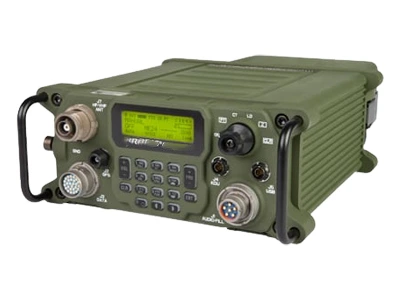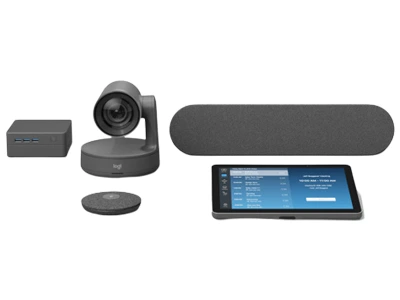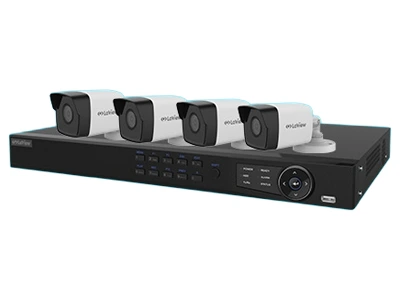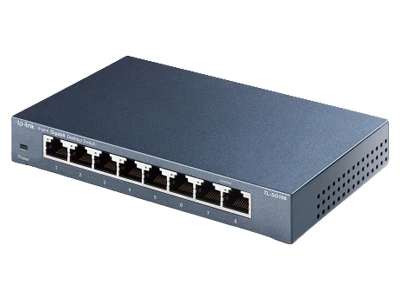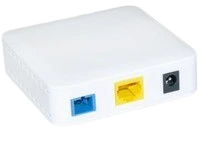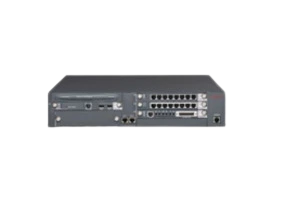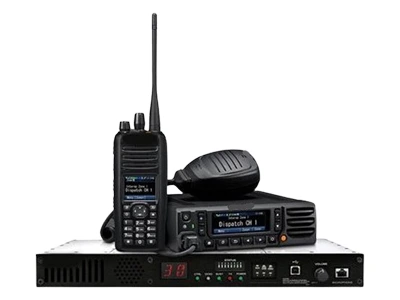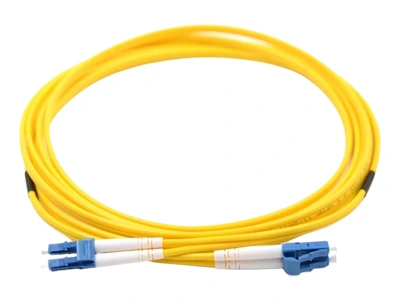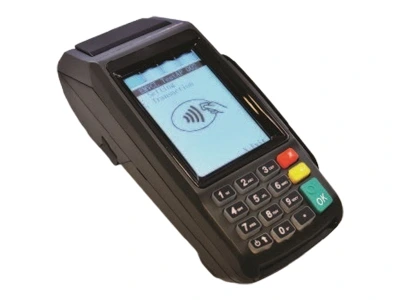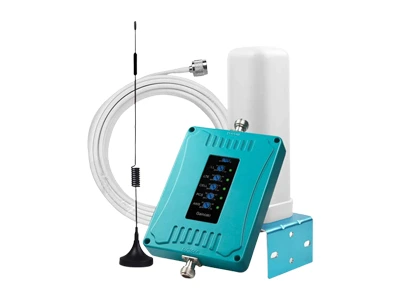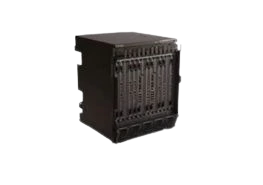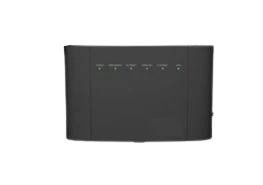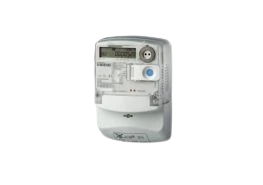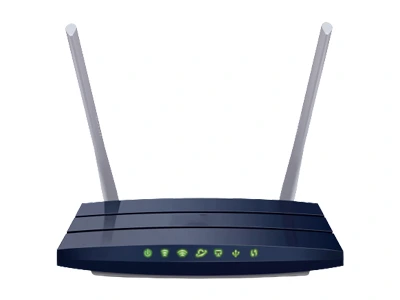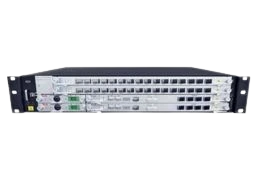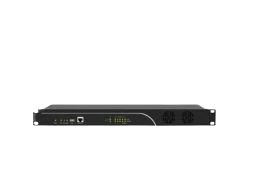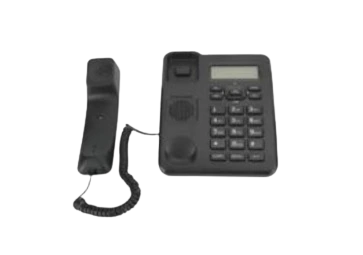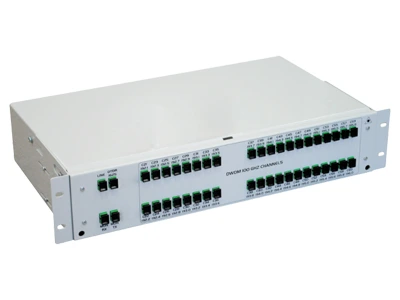- HOME
- ABOUT US
- SERVICES
-
LICENCE & CERTIFICATION
- BIS (ISI MARK) FOR FOREIGN MANUFACTURERS
- DOMESTIC PRODUCT CERTIFICATION (ISI MARK)
- BIS SCHEME X CERTIFICATION
- BIS CERTIFICATE OF CONFORMITY (CoC)
- BIS HALLMARKING
- REACH CERTIFICATION (GLOBAL)
- LABORATORY RECOGNITION SCHEME (LRS)
- WORLD MANUFACTURER IDENTIFIER (WMI) CODE
- ECO MARK
- TAC APPROVAL FOR AUTOMOBILE
- PESO CERTIFICATION
- SASO CERTIFICATION
- CDSCO CERTIFICATION
-
REGISTRATION
- BIS (CRS) REGISTRATION FOR ELECTRONIC PRODUCT
- WPC-ETA APPROVAL
- BEE CERTIFICATION
- E-WASTE MANAGEMENT (EPR)
- EPR REGISTRATION FOR PLASTIC WASTE MANAGEMENT
- EPR REGISTRATION FOR BATTERY WASTE MANAGEMENT
- EPR REGISTRATION FOR USED OIL
- LEGAL METROLOGY (LMPC)
- TEC/MTCTE APPROVAL
- CE CERTIFICATION
- UL CERTIFICATION
- ROHS LICENCE
- DRONE REGISTRATION
- MOEF LICENCE
-
AUXILIARY
- STANDARDIZATION (SCIENTIFIC) DIVISION
- TRAINING SERVICES (NATIONAL & INTERNATIONAL)
- IMPORT/EXPORT LICENCE
- FSSAI CERTIFICATION
- MSME/SSI/NSIC REGISTRATION
- ISO REGISTRATION
- BRAND REPRESENTATION
- LABORATORY EQUIPMENT AND SETUP
- TRADEMARK REGISTRATION
- MAKE IN INDIA SUPPORT
- AG-MARK LICENCE
- THIRD PARTY INSPECTION AND MONITORING SERVICES
-
- PORTFOLIO
- UPDATES
- CONTACT
- LOGIN

TELECOMMUNICATION ENGINEERING CENTRE (TEC)
[ Table Of Content ]
- Introduction
- What is TEC Approval?
- Products Under TEC Aprroval
- Types of voluntary testing certification
- Mandatory Testing and Certification of Telecom Equipment (MTCTE)
- Products covered under Phase-III of MTCTE
- Products covered under Phase-IV of MTCTE
- Requirements
- Process of TEC certification
- Document required for mandatory testing & certification of telecommunication equipment
- Timeline
- Frequently Asked Questions (FAQ)
INTRODUCTION
TEC: Since the early 2000s, the telecom industry has been swept up in fast liberalization and innovation. Companies in the telecommunications business send data around the globe in the form of words, voice, audio, or video. The three basic sub-sectors of telecommunications are telecom equipment, telecom services, and wireless communication.
In the 1830s, the first mechanical gadget Telegraph was invented with its invention telecommunication industry began. With the advancement of the technology, telecommunication sector has progressed. In order to maintain the progress of the telecom sector, the government of India in 1991 started a new department TELECOMMUNICATION ENGINEERING CENTRE under which standards are developed for the telecommunication sector and ensure the world-class network and the seamless connectivity of individual networks.
A TEC certificate is required for telecom equipment dealers to import, manufacture, and sell such equipment. The Telecommunication Engineering Centre issues this TEC certificate after the telecom equipment undergoes testing under the MTCTE (Mandatory Testing and Certification of Telecom Equipment) scheme.
You'll receive a unique registration number once you complete the TEC Registration process. This number serves as your equipment's unique identifier. You can prominently display this certification on your product to assure customers of its authenticity and compliance.
What is TEC Approval | TEC Certificate Full Form?
TEC stands for Telecommunication Engineering Centre. TEC assists the Government of India's Department of Telecommunications (DoT) in the development and implementation of different standards and policies for the safe and secure use of emerging technologies in telecommunications. TEC India has published specifications for telecom equipment quality measures. Generic Requirements (GRs), Interface Requirements (IRs), and Service Requirements (SR) are the three types of specifications.
TYPES OF VOLUNTARY TESTING CERTIFICATION
TEC India is responsible to issue various approvals such as Interface Approvals, Certificate of Approvals, Service Approvals and Type Approvals. This certification scheme is totally based on the type of products and interface technical related standards. Certification is totally based on the testing parameters and as per the conditions mentioned in the Technical standards.
- Type Approval - Type Approval is the process of testing and certifying a telecom product in accordance with TEC's Test Schedule & Test Procedure (TSTP) for compliance to the Standard for Products/Equipment (erroneously known as the product's Generic Requirement (GR)). Testing is on-site at the OEMs premises or in a lab environment. EMC, Safety, Environmental Testing etc. from ILAC signatory accredited labs test reports are also accepted.
- Interface Approval - Interface Approval is the process of testing and certifying a telecom product in accordance with TEC's Test Schedule & Test Procedure (TSTP) for compliance with the Standard for Products/Equipment (erroneously known as the product's Interface Requirement (IR)). Testing is on-site at the OEMs premises or in a lab environment. EMC, Safety, Environmental Testing etc. from ILAC signatory accredited labs test reports are also accepted. License requirements, Government agencies, or service providers may require Interface Approval as mandatory certification.
- Certificate of Approval - The process of testing and certifying a telecom product according to the manufacturer's criteria is known as Certificate of Approval (CoA). Only when TEC does not have a Generic or Interface Requirement for the product is this certificate issued. Testing is on-site at the OEMs premises or in lab environment. EMC, Safety, Environmental Testing etc. from ILAC signatory accredited labs test reports are also accepted.
- Technology Approval - The process of testing and certification of a prototype of a telecom product developed by C-DoT or other R&D organizations is known as technology approval. Technology Approval is granted in accordance with the product's associated standard, formerly known as the Generic Requirement (GR) provided by TEC. Testing is on-site at the OEMs premises or in a lab environment. EMC, Safety, Environmental Testing etc. from ILAC signatory accredited labs test reports are also accepted.
PRODUCTS UNDER TEC Approval
MANDATORY TESTING AND CERTIFICATION OF TELECOM EQUIPMENT (MTCTE)
Every telecom equipment must undergo mandatory testing and certification prior to sale, import, or usage in India, according to the Indian Telegraph (Amendment) Rules, 2017. The testing is to be carried out for conformance to Essential Requirements (ER) for the equipment, by Indian Accredited Labs designated by TEC and based upon their test reports; a TEC certificate shall be issued by Telecommunication Engineering Centre.
Starting from 1 October 2019, it became compulsory for manufacturers or importers of telecom equipment covered under MTCTE Phase l to obtain TEC certification for their product. MTCTE Phase 1 covered a wide range of products, including mobile phones, telephones, fax machines, modems, wireless devices, satellite communication equipment, and more. List Of Products (Essential Requirements) Covered Under Phase-l of MTCTE are:
| S. No. | Product Name | Product Variant Name | Category of Product (GCS/SCS) |
|---|---|---|---|
| 1. | 2- Wire Telephone Equipment | 2-Line Feature Phone | SCS |
| 2. | 2- Wire Telephone Equipment | CLIP Phone | SCS |
| 3. | 2- Wire Telephone Equipment | Coin Box Telephone | SCS |
| 4. | 2- Wire Telephone Equipment | Coin Box Telephone - Table Top Interface | SCS |
| 5. | 2- Wire Telephone Equipment | Electronic Telephone Instrument | SCS |
| 6. | 2- Wire Telephone Equipment | Executive Telephone Systems | SCS |
| 7. | 2- Wire Telephone Equipment | Key Telephone System | SCS |
| 8. | 2- Wire Telephone Equipment | Key Telephone Systems with proprietary interface | SCS |
| 9. | 2- Wire Telephone Equipment | NSD or ISD Payphone | SCS |
| 10. | 2- Wire Telephone Equipment | Terminals for connecting to PSTN | SCS |
| 11. | G3 Fax Machine | FAX machine with handset | SCS |
| 12. | G3 Fax Machine | FAX machine without handset | SCS |
| 13. | Modem | V.90 or V.92 or V.21 to V.34 Modem | SCS |
| 14. | Cordless Telephone | Cordless Telephone | SCS |
| 15. | ISDN Customer Premises Equipment | ISDN Gateway | SCS |
| 16. | ISDN Customer Premises Equipment | ISDN NT-1 Network Termination | SCS |
| 17. | ISDN Customer Premises Equipment | ISDN Terminal | SCS |
| 18. | ISDN Customer Premises Equipment | ISDN Terminal Adapter | SCS |
| 19. | ISDN Customer Premises Equipment | Multipoint Conferencing Server | SCS |
| 20. | ISDN Customer Premises Equipment | PC card based ISDN Terminal | SCS |
| 21. | Private Automatic Branch Exchange | Private Automatic Branch Exchange | SCS |
Effective from 1 October 2020, it is mandatory to obtain TEC certification for the products covered under MTCTE Phase 2 before selling them in India. Phase 2 of the MTCTE scheme encompassed a wide range of telecom equipment, including routers, switches, network interface devices, optical transport equipment, and more. List Of Products (Essential Requirements) Covered Under Phase-ll of MTCTE are:
| S. No. | Product Name | Product Variant Name | Category of Product (GCS/SCS) |
|---|---|---|---|
| 1. | PON Family of Broadband Equipment | PON ONU | SCS |
| 2. | PON Family of Broadband Equipment | PON ONT | SCS |
| 3. | PON Family of Broadband Equipment | PON OLT | SCS |
| 4. | Feedback Device | Feedback Device | SCS |
| 5. | Transmission Terminal Equipment1 | Multiplexing Equipment | SCS |
| 6. | Transmission Terminal Equipment1 | SDH Equipment | SCS |
Starting from 1 October 2023, manufacturers or importers of 10 specific telecom products will be obligated to obtain certification before selling them in India. Additionally, starting from 1 January 2024, an additional 14 products will come under the mandatory certification requirement.
| S. No. | Product Name | Product Variant Name | Category of Product (GCS/SCS) |
|---|---|---|---|
| 1. | Equipments Operating in 2.4 GHz and 5 GHz Band | PTP PMP Wireless Access Equipment 2.4 or 5 GHz | SCS |
| 2. | Equipments Operating in 2.4 GHz and 5 GHz Band | Wifi Access Points and CPE | SCS |
| 3. | Equipments Operating in 2.4 GHz and 5 GHz Band | WLAN Controller Equipment | SCS |
| 4. | IoT Gateway | IoT Gateway | GCS |
| 5. | Tracking Device | Asset Tracking Device | SCS |
| 6. | Tracking Device | Human Tracking Device | SCS |
| 7. | Tracking Device | Pet Tracking Device | SCS |
| 8. | Tracking Device | Vehicle Tracking Device | SCS |
| 9. | Smart Electricity Meter | Smart Electricity Meter | SCS |
| 10. | End Point Device for Environmental Monitoring | End Point Device for Environmental Monitoring | SCS |
| 11. | Repeater for Cellular Network | GSM and WCDMA Repeater | GCS |
| 12. | Repeater for Cellular Network | GSM Repeater | GCS |
| 13. | Repeater for Cellular Network | GSM WCDMA and LTE Repeater | GCS |
| 14. | Repeater for Cellular Network | LTE Repeater | GCS |
| 15. | Repeater for Cellular Network | WCDMA and LTE Repeater | GCS |
| 16. | Repeater for Cellular Network | WCDMA Repeater | GCS |
| 17. | Base Station for Cellular Network | BTS for GSM | GCS |
| 18. | Base Station for Cellular Network | BTS with AAS | GCS |
| 19. | Base Station for Cellular Network | BTS with MSR | GCS |
| 20. | Base Station for Cellular Network | eNodeB for LTE | GCS |
| 21. | Base Station for Cellular Network | NodeB for WCDMA | GCS |
| 22. | Compact Cellular Network | BTS CCN | GCS |
| 23. | Compact Cellular Network | eNodeB CCN | GCS |
| 24. | Compact Cellular Network | NodeB CCN | GCS |
The date of mandatory certification for products covered under MTCTE Phase lV varies, with some products requiring mandatory TEC certification from 1 October 2023, while others will need certification starting from 1 January 2024.
| S. No. | Product Name | Product Variant Name | Category of Product (GCS/SCS) |
|---|---|---|---|
| 1. | LAN Switch | L2 LAN Switch | SCS |
| 2. | LAN Switch | L3 LAN Switch | SCS |
| 3. | LAN Switch | MPLS TP CEN Switch | SCS |
| 4. | LAN Switch | L2 Unmanaged Switch | SCS |
| 5. | Router | BNG or BRAS Router | SCS |
| 6. | Router | Cloud Control Capable Router | SCS |
| 7. | Router | IPV4 Router | SCS |
| 8. | Router | IPV6 Router | SCS |
| 9. | Router | MPLS Router | SCS |
| 10. | IP Security Equipment | Firewall Equipment | SCS |
| 11. | IP Security Equipment | Intrusion Detection System Equipment | SCS |
| 12. | IP Security Equipment | Intrusion Prevention System Equipment | SCS |
| 13. | IP Security Equipment | Unified Threat Management Equipment | SCS |
| 14. | Media Gateway | Line Media Gateway | SCS |
| 15. | Media Gateway | Media Gateway | SCS |
| 16. | Media Gateway | Media Gateway for CPE | SCS |
| 17. | Signalling Gateway | Signalling Gateway | SCS |
| 18. | Softswitch | Softswitch | SCS |
| 19. | Infiniband Switch | Infiniband Switch | SCS |
| 20. | IP Multimedia Conferencing Equipment | IP Multimedia Conferencing Equipment | SCS |
| 21. | Conferencing Equipment | Audio Conference Facility Device | SCS |
| 22. | Conferencing Equipment | Multi Line Telephone System | SCS |
| 23. | Optical Fibre Cable | Hybrid Cable - Optical and Metallic | SCS |
| 24. | Optical Fibre Cable | Optical Fibre Cable - ADSS on Aerial alignment | SCS |
| 25. | Optical Fibre Cable | Optical Fibre Cable - ADSS over Power line | SCS |
| 26. | Optical Fibre Cable | Optical Fibre Cable - Direct Buried | SCS |
| 27. | Optical Fibre Cable | Optical Fibre Cable – DSA | SCS |
| 28. | Optical Fibre Cable | Optical Fibre Cable – Duct | SCS |
| 29. | Optical Fibre Cable | Optical Fibre Cable - In home | SCS |
| 30. | Optical Fibre Cable | Optical Fibre Cable – Indoor | SCS |
| 31 | Optical Fibre Cable | Optical Fibre Cable - Indoor or Outdoor | SCS |
| 32. | Optical Fibre Cable | Optical Fibre Cable - Lashed Aerial | SCS |
| 33. | Optical Fibre Cable | Optical Fibre Cable - Micro -Duct | SCS |
| 34. | Optical Fibre Cable | Optical Fibre Cable – Outdoor | SCS |
| 35. | Optical Fibre Cable | Optical Fibre Cable – Riser | SCS |
| 36. | Optical Fibre Cable | Optical Groung Wire -OPGW | SCS |
| 37. | Optical Fibre - Single Mode | Optical Fibre - G.652.D | GCS |
| 38. | Optical Fibre - Single Mode | Optical Fibre - G.655 | GCS |
| 39. | Optical Fibre - Single Mode | Optical Fibre - G.656 | GCS |
| 40. | Optical Fibre - Single Mode | Optical Fibre - G.657.A1 | GCS |
| 41. | Optical Fibre - Single Mode | Optical Fibre - G.657.A2 | GCS |
| 42. | Optical Fibre - Single Mode | Optical Fibre - G.657.B3 | GCS |
| 43. | Optical Fibre - Single Mode | Optical Fibre - G.654.D | GCS |
| 44. | Optical Fibre - Single Mode | Optical Fibre -G.654.E | GCS |
| 45. | HF Radio | HF Base Station - Baseband plus Radio | GCS |
| 46. | HF Radio | HF Base Station - Radio Only | GCS |
| 47. | HF Radio | HF Baseband Equipment without Radio | GCS |
| 48. | HF Radio | HF Fixed Station | GCS |
| 49. | HF Radio | HF Handheld Portable Stations | CGS |
| 50. | HF Radio | HF Mobile Stations | GCS |
| 51. | Session Border Controller | Session Border Controller | SCS |
| 52. | Mobile Radio Trunking System | MRTS Base Station - Baseband plus Radio | GCS |
| 53. | Mobile Radio Trunking System | MRTS Base Station - Radio Only | GCS |
| 54. | Mobile Radio Trunking System | MRTS Baseband Equipment without Radio | GCS |
| 55. | Mobile Radio Trunking System | MRTS Fixed Station | GCS |
| 56. | Mobile Radio Trunking System | MRTS Handheld Portable Station | GCS |
| 57. | Mobile Radio Trunking System | MRTS Mobile Station | GCS |
| 58. | VHF UHF Radio System Equipment | VHF UHF Base Station - Baseband plus Radio | GCS |
| 59. | VHF UHF Radio System Equipment | VHF UHF Base Station - Radio Only | GCS |
| 60. | VHF UHF Radio System Equipment | VHF UHF Baseband Equipment without Radio | GCS |
| 61. | VHF UHF Radio System Equipment | VHF UHF Fixed Station | GCS |
| 62. | VHF UHF Radio System Equipment | VHF UHF Handheld Portable Stations | GCS |
| 63. | VHF UHF Radio System Equipment | VHF UHF Mobile Stations | GCS |
| 64. | PTP PMP Microwave Fixed Radio Systems | PTP or PMP Full Outdoor Microwave Systems | GCS |
| 65. | PTP PMP Microwave Fixed Radio Systems | PTP or PMP Split MW Indoor Unit | GCS |
| 66. | PTP PMP Microwave Fixed Radio Systems | PTP or PMP Split MW Outdoor Unit | GCS |
| 67. | DSL Equipments | DSL NT Modem | SCS |
| 68. | DSL Equipments | DSLAM COT | SCS |
| 69. | DSL Equipments | OMSAN | SCS |
| 70. | Satellite Communication Equipment | Satellite Amplifier | GCS |
| 71. | Satellite Communication Equipment | Satellite Baseband Mod or Demod or Controller | GCS |
| 72. | Satellite Communication Equipment | Satellite Baseband Modem | GCS |
| 73. | Satellite Communication Equipment | Satellite Baseband Modem Controller | GCS |
| 74. | Satellite Communication Equipment | Satellite BUC | GCS |
| 75. | Satellite Communication Equipment | Satellite IF Transreceiver | GCS |
| 76. | Satellite Communication Equipment | Satellite LNA | GCS |
| 77. | Satellite Communication Equipment | Satellite LNB | GCS |
| 78. | Satellite Communication Equipment | Satellite Optimisation Equipment | GCS |
| 79. | Satellite Communication Equipment | Satellite Radio Frequency Transceiver | GCS |
| 80. | Satellite Communication Equipment | VSAT Terminals | GCS |
| 81. | Precision Timing Protocol Grand Master Equipment | Precision Timing Protocol Grand Master Equipment | GCS |
| 82. | Mobile Management Entity | MME for 2G or 3G or 4G | SCS |
| 83. | Mobile Management Entity | MME for LTE only | SCS |
| 84. | Cell Broadcast Centre | CBC for GSM | SCS |
| 85. | Cell Broadcast Centre | CBC for LTE or LTE - A | SCS |
| 86. | Cell Broadcast Centre | CBC For UMTS | SCS |
| 87. | BSC RNC | BSC for GSM | GCS |
| 88. | BSC RNC | RNC for WCDMA | GCS |
| 89. | SMLC or eSMLC | eSMLC for LTE | SCS |
| 90. | SMLC or eSMLC | SMLC for GSM | SCS |
| 91. | SMLC or eSMLC | SMLC for WCDMA | SCS |
| 92. | SGSN or GGSN | GGSN | SCS |
| 93. | SGSN or GGSN | SGSN For GSM | SCS |
| 94. | SGSN or GGSN | SGSN For LTE | SCS |
| 95. | SGSN or GGSN | SGSN For WCDMA | SCS |
| 96. | HLR AUC HSS | HLR or AUC | SCS |
| 97. | HLR AUC HSS | HSS | SCS |
| 98. | MSC or MSC -S or GMSC or GMSC -S including VLR | MSC -S or GMSC - S | SCS |
| 99. | MSC or MSC -S or GMSC or GMSC -S including VLR | MSC or GMSC including VLR for GSM | SCS |
| 100. | MSC or MSC -S or GMSC or GMSC -S including VLR | MSC or GMSC including VLR for WCDMA | SCS |
| 101. | OTA and DM or FOTA | DM or FOTA | SCS |
| 102. | OTA and DM or FOTA | OTA | SCS |
| 103. | SCP | SCP | SCS |
| 104. | OMC or EMS or NMS or OSS | NMS | SCS |
| 105. | OMC or EMS or NMS or OSS | OMC or EMS | SCS |
| 106. | S -GW or P -GW | P -Gateway | GCS |
| 107. | S -GW or P -GW | S -Gateway | GCS |
| 108. | SMSC | SMSC | SCS |
| 109. | GMLC | GMLC for GSM or WCDMA | SCS |
| 110. | GMLC | GMLC for LTE or LTE - A | SCS |
| 111. | EIR | EIR for GSM or WCDMA | SCS |
| 112. | EIR | EIR for LTE | SCS |
| 113. | SIM | CSIM | GCS |
| 114. | SIM | eSIM | GCS |
| 115. | SIM | eUICC | GCS |
| 116. | SIM | RUIM | GCS |
| 117. | SIM | SIM | GCS |
| 118. | SIM | UICC based ISIM | GCS |
| 119. | SIM | USIM | GCS |
| 120. | Radio Broadcast Receiver RBR | All Motor vehicle RBRs requiring external power | SCS |
| 121. | Radio Broadcast Receiver RBR | Radio Broadcast receivers driven with in -built power source. | SCS |
| 122. | Radio Broadcast Receiver RBR | Other devices having radio broadcast receivers interfaces. | SCS |
| 123. | Transmission Terminal Equipment - 2 | DWDM Equipment | GCS |
| 124. | Transmission Terminal Equipment - 2 | Digital Cross Connect | GCS |
| 125. | Base Station for Cellular Network for 5G | Base Station 5G NR Type 1C | GCS |
| 126. | Base Station for Cellular Network for 5G | Base Station 5G NR Type 1O | GCS |
| 127. | Base Station for Cellular Network for 5G | Active Antenna System -OTA | GCS |
| 128. | Base Station for Cellular Network for 5G | BTS with Multi Standard Radio | GCS |
| 129. | Base Station for Cellular Network for 5G | Base Station 5G NR Type 1H | GCS |
| 130. | Base Station for Cellular Network for 5G | Base Station 5G NR Type 2O | GCS |
| 131. | Base Station for Cellular Network for 5G | Hybrid Active Antenna System | GCS |
In accordance with the Indian Telegraph (Amendment) Rules 2017, pertaining to the Mandatory Testing & Certification of Telecom Equipment (MTCTE) regime, the acceptance of applications for Phase-V on the MTCTE portal will commence from July 1, 2023. Furthermore, certification for Phase-V products (ERs) becomes mandatory from July 1, 2024.
| S.No. | Product Name | Product Variant Name | Category of Product (GCS/SCS) |
|---|---|---|---|
| 1 | Base station for cellular network for 5G | BTS with Multi Standard Radio | GCS |
| 2 | Base station for cellular network for 5G | Active Antenna System-OTA | GCS |
| 3 | Base station for cellular network for 5G | Base Station 5G NR Type 1C | GCS |
| 4 | Base station for cellular network for 5G | Base Station 5G NR Type 1H | GCS |
| 5 | Base station for cellular network for 5G | Base Station 5G NR Type 1H | GCS |
| 6 | Base station for cellular network for 5G | Base Station 5G NR Type 1O | GCS |
| 7 | Base station for cellular network for 5G | Base Station 5G NR Type 2O | GCS |
| 8 | Base station for cellular network for 5G | Hybrid Active Antenna System | GCS |
| 9 | 5G Core | AMF | SCS |
| 10 | 5G Core | AuSF | SCS |
| 11 | 5G Core | BSF | SCS |
| 12 | 5G Core | CHF | SCS |
| 13 | 5G Core | NEF | SCS |
| 14 | 5G Core | NSSF | SCS |
| 15 | 5G Core | PCF | SCS |
| 16 | 5G Core | SMF | SCS |
| 17 | 5G Core | SMSF | SCS |
| 18 | 5G Core | UDM | SCS |
| 19 | 5G Core | UDR | SCS |
| 20 | 5G Core | UPF | SCS |
| 21 | Hypervisor | Hypervisor | SCS |
| 22 | E-band Fixed Radio Relay System | E-Band MW Full Outdoor System | GCS |
| 23 | E-band Fixed Radio Relay System | E-Band MW Outdoor System plus Indoor System | GCS |
| 24 | Converged Multi service Application Access Equipment (C-MSAAE) | (C-MSAAE) | SCS |
| 25 | IP Terminal | SIP Terminal | SCS |
| 26 | Hybrid Set Top Box | Hybrid Set Top Box | SCS |
Additionally, for products (ERs) falling under Phase-V, test reports issued by labs accredited by International Laboratory Accreditation Cooperation (ILAC) signatories from non-border sharing countries for technical parameters only will be accepted up to June 30, 2024.
List of proposed products/EPRs under Phase-V of MTCTE with ILAC report acceptance (wherever applicable) up to 30.06.2024 from non-border sharing countries for technical parameters only
| S. No. | Name of Product/ER | ILAC report acceptance |
|---|---|---|
| 1. | Base Station for Cellular Network for 5G | Yes |
| 2. | 5G Core | Yes |
| 3. | Hypervisor | yes |
| 4. | E-band Fixed Radio Relay System | Yes |
| 5. | Converged Multi Service Application Access Equipment (C-MSAAE) | NO |
| 6. | IP Terminal | NO |
| 7. | Hybrid Set Top Box | No |
For products covered under the MTCTE regime, test reports/results issued by foreign labs accredited by ILAC signatories from non-border sharing countries, specifically for technical parameters only, will have a validity of up to two years from the date of submission.
Check the complete list of products covered by MTCTE in different Phases with the Mandatory date of certification of product under MTCTE Click Here
Latest Government Notification
- Procedure for Mandatory Testing & Certification of Telecommunication Equipment.
- Extension of Mandatory certification date for 10 products(ERs) notified under Phase-III & IV of MTCTE by four months i.e from 01.04.2024 to 01.08.2024-reg.
- Extension of Mandatory Security testing of WiFi CPE and IP Router under MTCTE-reg.
Exempted Product List
The Telecommunication Engineering Centre (TEC) under the Department of Telecommunication has issued a notification on 08/01/2024, announcing the exemption of certain products from the mandatory TEC Certification list. A broad exemption from submitting test reports for specified test parameters/interfaces related to various Essential Requirements (ERs) under MTCTE has been extended until June 30, 2024, or until further notice. Check the exempted products list, Click Here
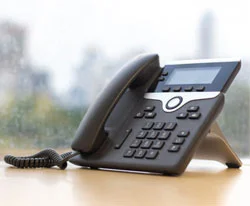
Wire Telephone Equipment
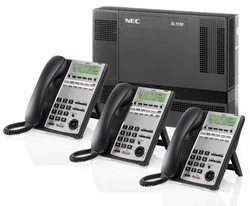
Private Automobile Branch Exchange
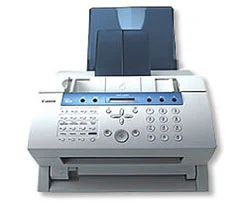
G3 Fax Machine
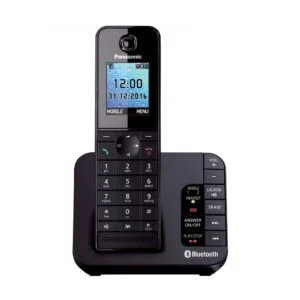 Cordless Telephone
Cordless Telephone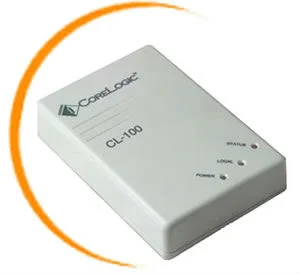 ISDN Customer
Premises Equipment
ISDN Customer
Premises Equipment
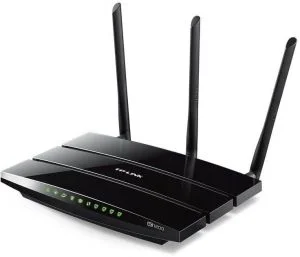 Modem
ModemREQUIREMENTS
- Authorized Signatory from Authorized Indian Company.
- In case of Foreign OEM: Foreign OEM needs to appoint an Indian Company to act as Representative for the MTCTE certification procedure. MoU between foreign OEM and Indian Representative.
- In the case of Indian Manufacturer: Manufacturer based in India needs to provide their legal documents for the registration on the portal.
- Product with Valid Test report from Indian labs approved by TEC.
- Brand / Trademark Details.
- Company Registration.
How to Get TEC Certification in India?
Process of TEC Certification: Mandatory Testing & Certification of Telecommunication Equipments
- Online portal generation on MTCTE portal: Applicant needs to register on MTCTE portal for login credentials.
- Application submission with all relevant documents: The applicant may register online and fill all information and upload relevant documents on the MTCTE portal. The documents cannot be changed once they have been submitted.
- Scrutiny of application: TEC will evaluate the documents, and any document deficiencies will be communicated to the applicant. After correcting any deficiencies, the applicant's registration will be accepted; after that, the applicant will be able to submit applications for testing/certification.
- Application submission for testing/certification: Applicant must select the product to be certified, its variant details, and information about available interfaces and accompanying models, if appropriate, and upload the BoM and datasheet of equipment to the portal. Applicant must also submit the manufacturing location(s) of the Telecom / ICT Equipment under certification and contact information for the location.
- Payment of fee: After application submission, the applicant will be shown the applicable certification scheme, ER, and fee payable. Applicant must pay the testing fee.
- Testing of product: Applicant can select CAB as per his choice on MTCTE portal's testing section. Telecom/ICT equipment must be tested in a designated or recognized Conformity Assessment Bodies (CAB) of an MRA partner country.
- Submission of test report: Applicant must get his product tested at CAB and upload test report. The applicant must submit a summary of the test reports together with the test results, upload the test reports, and accept an online undertaking about the correctness of the uploaded documents/reports.
- Scrutiny of test report: The submitted test results will be reviewed, and a certificate will be granted if the equipment is found to be compliant.
- Grant of certificate: TEC grant certificate if they are satisfied with all test reports and equipment per specified standard.
DOCUMENT REQUIRED FOR MANDATORY TESTING & CERTIFICATION OF TELECOMMUNICATION EQUIPMENT
- Company Registration document
- Authorization Letter issued by the company (Indian OEM and AIR in case of Foreign OEM) authorizing for MTCTE related responsibilities.
- Either Director or CS duly signs the company's Articles of Association (AoA).
- The company's Memorandum of Association (MoA) duly signed by either Director or Company Secretary as per the norms.
- The company's latest available Shareholding pattern indicates the board of members/shareholders.
- MoU between foreign OEM and Indian representative (AIR) for sale and support of the product in India, and
- Authorizing the AIR for discharging MTCTE related responsibilities.
Note: Authorized Indian representative looking for TEC Certificate Apply should follow TEC procedure for the Mandatory Testing and Certification for Telecom Equipment.
Timeline
Certification procedure may take 60 Days. It may be vary depending on product category, test required and so on.
TEC Registration Certificate Cost for Equipment
To obtain a TEC Certificate for different equipment, you can easily get TEC Certificate by paying the fee.
| Group of Equipment | Administrative Fee | Test Report Evaluation Fee |
|---|---|---|
| A | INR 10,000/- | INR 50,000/- |
| B | INR 20,000/- | INR 1,00,000/- |
| C | INR 30,000/- | INR 2,00,000/- |
| D | INR 50,000/- | INR 4,00,000/- |
HOW ALEPH INDIA CAN HELP YOU TO GET A TEC CERTIFICATE?
If you're a manufacturer seeking TEC Certification service to obtain TEC Registration for your telecom product, Aleph INDIA, a leading TEC Certification consultant, is here to assist you. Since 2013, we've been offering comprehensive solutions for product certification to manufacturers in India and abroad.
Our expertise extends to a variety of products, including telecom equipment, and we specialize in helping you navigate the TEC Certification process. With our guidance and support, you can ensure that your telecom product meets all the required standards and receives the necessary TEC Certificate.
Aleph INDIA's services go beyond TEC Registration service. We also provide a wide range of technical and regulatory compliance services, including product testing, technical training, and auditing, all aimed at helping industries achieve higher productivity and maintain quality standards.
Trust Aleph INDIA to be your partner in applying for the TEC Certificate for your telecom product, ensuring it meets the necessary quality and safety criteria for the Indian market.
frequently asked questions (FAQ)
- Field evaluation of products and Systems
- National Fundamental Plans
- Support to DoT on technology issues
- Testing & Certification of Telecom products
- Safety of end-user
- that any telecom equipment linked to an existing network does not harm its performance
- By ensuring that radio frequency emissions from equipment do not exceed authorized levels, users and the general public is protected.
- Entire paper work related to the Certification.
- Liaison with TEC authority which includes detailed Application preparation, submission, replying to time to time queries providing clarifications.
- Sending pre-registration request and documentation.
- Testing of Telecom Equipment from TEC Designated labs.
- Online submission of Documents.
- Online submission of Fee.
- Hard Copy Submission of all docs to TEC authority.
- Multiple visits to TEC authority, Agreement Documents signing.
- Time to time miscellaneous/incidental works throughout the certificate granting process.
- Complete solution for TEC-MTCTE realted queries with the help of highly experienced professional team.
TEC is a telecommunication Engineering Centre that develops the standards for the telecommunication sector for the safety of end-user.
TEC Certification is like a mark of approval for telecom products, ensuring they are good quality and safe to use in India. This certification process checks that these products meet the specific standards required, ensuring that people in India can rely on high-quality and safe telecom equipment.
BoM means Bill of Material, and is a file containing details of all major modules/ components of the model being offered for testing. In case of an application for certification of multiple models, the BoM shall include such details of all models.
Designated Conformance Assessment Body' or 'Conformance Assessment Body (CAB)' means a test laboratory designated by TEC for testing of telecom equipment against specified Essential Requirements.
Telecommunication Engineering Centre (TEC) is an Indian Authority responsible for the Certification of Telecommunication Equipments. TEC Certification is mandatory to manufacture, import or sell Telecom equipments in India. Any Manufacturer or Importer of Telecommunication Equipments must obtain a TEC Certificate from TEC India, Department of Telecommunications, Ministry of Communications, Government of India.
A TEC Certificate Number is an unique ID obtained after the certification which can be used on the equipments to assure the consumers that the product follows the necessary specifications.
The cost of TEC Registration includes Testing fees, Professional Charges, Government Charges, and so on. To know more about the TEC registration fee, Contact us at +91 9990136656.
BIS REGISTRATION FOR ELECTRONIC & IT PRODUCT
In the era of globalization, world trade is growing rapidly and henceforth, Manufacturing and Import/Export businesses are also growing drastically...View More
BIS CERTIFICATE FOR FOREIGN MANUFACTURER
The Economy of India-the fastest developing economy on the globe with the capabilities that help it matches up with the biggest international...View More
PRODUCT CERTIFICATION SCHEME (ISI MARK) FOR DOMESTIC MANUFACTURERS
Anything a person buys from food to cars, clothes to electronics, branded to unnamed products there is always a question that wanders in one’s...View More
WIRELESS PLANNING AND COORDINATION (WPC)
WPC: Wireless means communication done from one point to another point without the wires and cables. Electromagnetic waves carry the ...View More
BUREAU OF ENERGY EFFICIENCY (BEE) CERTIFICATE
BEE CERTIFICATE: Energy is the future, and its conservation is the way of the bright future. Everyone claims the environment is important...View More
E-WASTE MANAGEMENT
E-waste is one of the world's fastest-growing trash streams. We currently manufacture almost 50 million tones of it each year...View More
Request a call back.
Would you like to speak to one of our Senior Technical advisers over the phone? Just submit your details and we’ll be in touch shortly. You can also email us if you would prefer.
BIS REGISTRATION FOR ELECTRONIC & IT PRODUCT
In the era of globalization, world trade is growing rapidly and henceforth, Manufacturing and Import/Export businesses are also growing drastically...View More
BIS CERTIFICATE FOR FOREIGN MANUFACTURER
The Economy of India-the fastest developing economy on the globe with the capabilities that help it matches up with the biggest international...View More
PRODUCT CERTIFICATION SCHEME (ISI MARK) FOR DOMESTIC MANUFACTURERS
Anything a person buys from food to cars, clothes to electronics, branded to unnamed products there is always a question that wanders in one’s...View More
WIRELESS PLANNING AND COORDINATION (WPC)
WPC: Wireless means communication done from one point to another point without the wires and cables. Electromagnetic waves carry the ...View More
BUREAU OF ENERGY EFFICIENCY (BEE) CERTIFICATE
BEE CERTIFICATE: Energy is the future, and its conservation is the way of the bright future. Everyone claims the environment is important...View More
E-WASTE MANAGEMENT
E-waste is one of the world's fastest-growing trash streams. We currently manufacture almost 50 million tones of it each year...View More
View All Services
Request a call back.
Would you like to speak to one of our Senior Technical advisers over the phone? Just submit your details and we’ll be in touch shortly. You can also email us if you would prefer.


